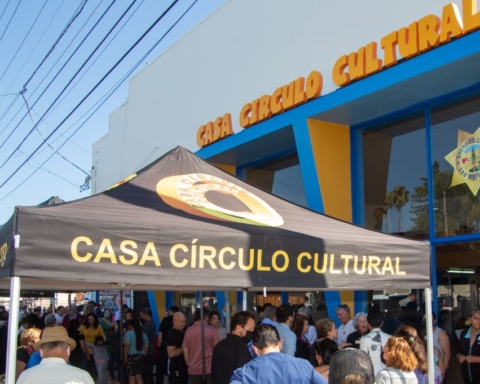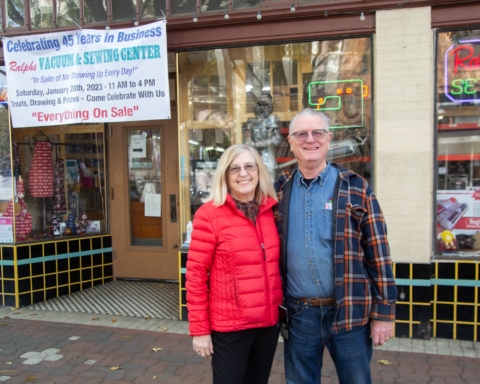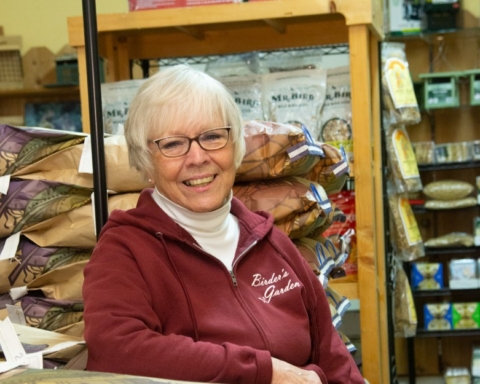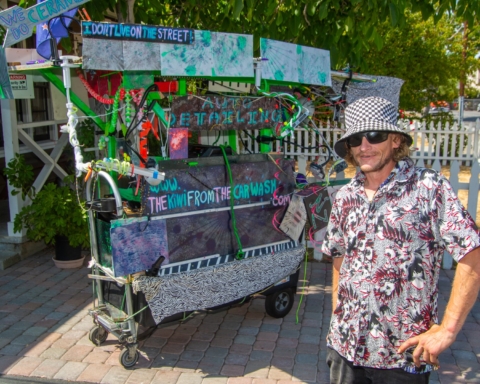Emily Mangini
Every time I grocery shop, I have a mini-existential crisis. Take eggs for example. Choosing a carton is no longer about large versus jumbo, white versus brown. Now we have to choose among local, organic, cage-free, pasture-raised, fortified with omega-3 and every possible combination in between. That’s where the panic sets in. If I go with the organic and pasture-raised, I’m not necessarily choosing local. But then maybe the local option isn’t organic; maybe it’s cage-free. But isn’t pasture-raised supposed to better for those little chickies? The pressure to save the world, to “vote with my dollars” is real.
This is not unique to eggs; the stress is cast onto anything harvested, fished or raised. Which is why I was eager to try out – and spotlight — some services that offer an ethical dimension to the concept of door-to-door grocery delivery. Each is tackling key issues plaguing our food system, making it easy for the average Joe to help fight food waste, support domestic, sustainable fishing, and eat locally raised meat. On top of that, they all deliver. Saving the world just got a little bit easier. No superhero cape required.
Imperfect Produce: Imperfect Produce is a San Francisco-based company that sources “ugly” produce and sells it to subscribers. What is “ugly” produce you might ask? Harvested produce goes through a culling process, where fruit and veggies are judged on their symmetry and blemishes. The produce that doesn’t make it gets discarded, never seeing the light of the market. In the end, more than six billion pounds of fruits and vegetables goes unharvested or unsold each year in the United States. Imperfect Produce says its customers can reduce unnecessary waste, as well as save money (visit imperfectproduce.com for more information.) Not only is the produce delicious, half the time it’s hard to figure out what actually makes it “imperfect” in the first place. Maybe, at most, the apples lean slightly to the left, but who doesn’t love a left-leaning apple? If you want to try it for yourself, the company is offering Climate readers a 30 percent discount off the price of the first box. Use promo code CLIMATEMAG; expiration 3/28/2019.
Five Marys Farms: Five Marys Farms is for omnivores who want to support local farmers. Owned and operated by Menlo Park natives Brian and Mary Heffernan, Five Marys is a family-run ranch raising Black Angus cattle, Navajo Churro lambs and Gloucestershire Old Spot heritage pigs. The animals are pasture-raised and spared of hormones or antibiotics. The customer has a wide range of ordering choices, from shanks, chops and steaks to animal shares (from a quarter of an animal all the way up), as well as sampler boxes with medleys of meats and cuts. Even offal (entrails and organs) that are a major source of waste in the meat industry can be purchased. While Five Marys Farm doesn’t make the claim to being 100 percent organic, it is “organically minded and GMO free whenever possible,” according to the website (fivemarysfarm.com). Five Marys is also offering a discount to Climate readers. Use CLIMATE5MARYS for 15 percent off the first order.
Sea to Table: Buying seafood has always been a struggle for me, and it’s not for a lack of wanting to eat fish. It just seems downright impossible to buy fish that is affordable and ethically/environmentally sourced. There’s just too much that I don’t know, so I basically avoid sea creatures altogether. Enter Sea to Table. Working with both large and small American fishing outfits, the company says all of the seafood sold is wild-caught, domestic and sustainable. What I also love about Sea to Table is that they work with chefs from all over the country, helping them think differently when it comes to seafood selection. Let’s all let the bluefin tunas repopulate, and give Atlantic spiny dogfish a moment in the spotlight! For information, go to www.sea2tablecom, and if you want to try the service for yourself, you can use promo code CLIMATE for $10 off of an order $30 or more; valid through 7/1/2018.
This article first appeared in the May 2018 issue of Climate magazine.






